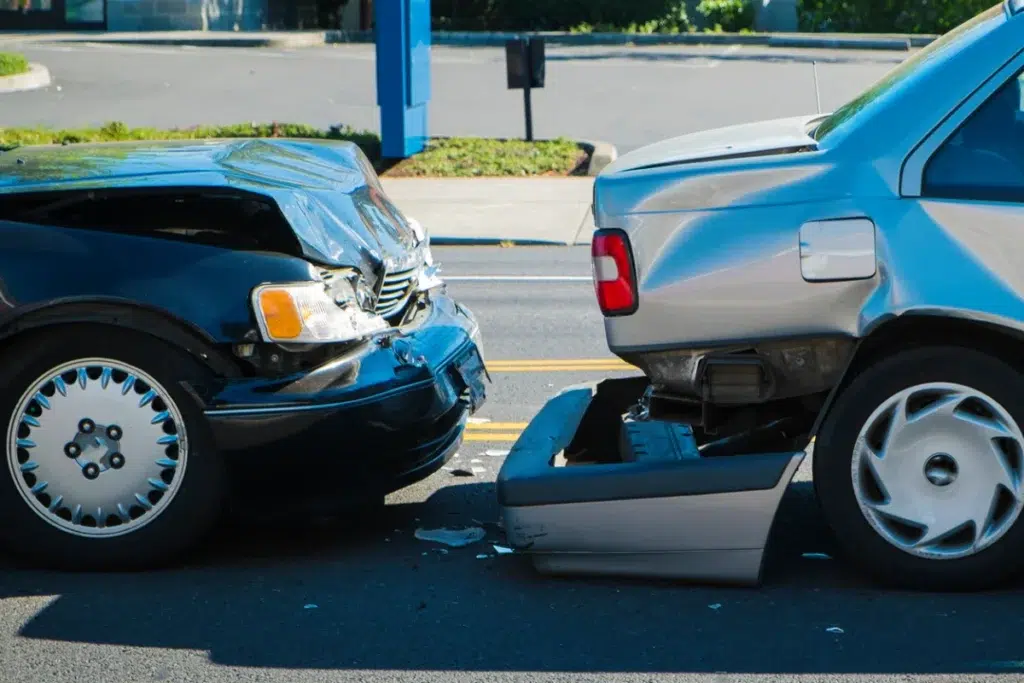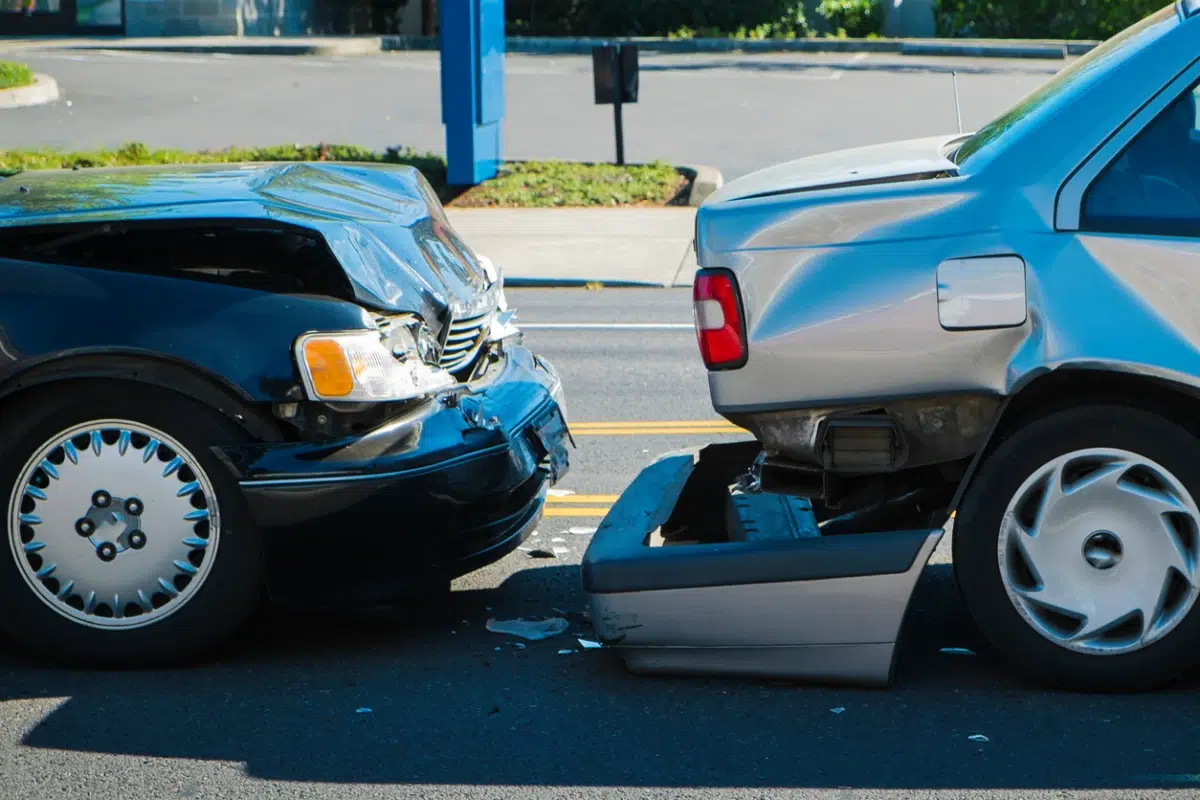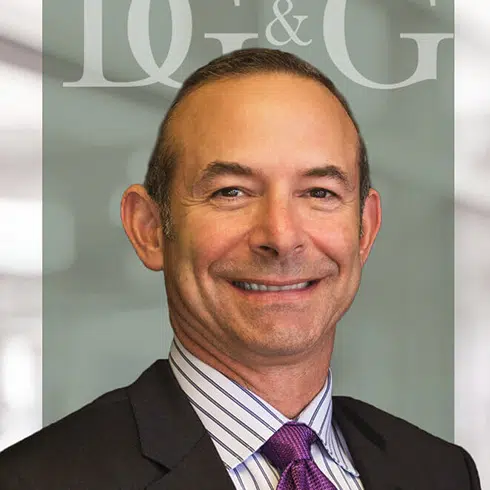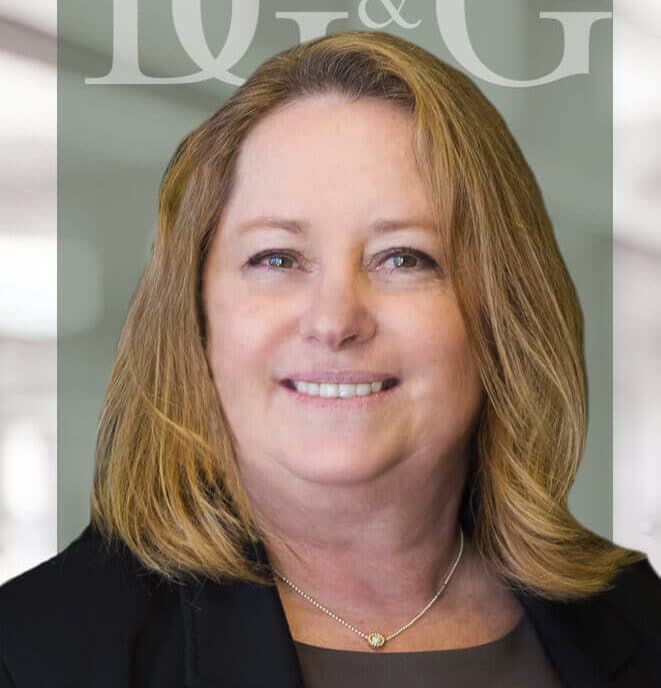
Being involved in a car accident is a jarring and often overwhelming experience. The screech of tires, the impact, and the immediate aftermath can leave you shaken and unsure of what to do next. When the accident is not your fault, a mix of relief and frustration can set in. While you may feel a sense of vindication, the road to securing fair compensation for your damaged vehicle and any injuries you may have sustained can be complex and fraught with potential pitfalls.
If you’re wondering what to do after a car accident that’s not your fault, you’re in the right place. This article walks you through every critical step to take after the collision, helps you understand your rights, and shows you how to protect yourself legally and financially. Before diving in, if you’re seeking immediate support, Delfino Green & Green provides experienced not-at-fault car accident lawyers in San Francisco who offer free consultations for accidents that weren’t your fault. Our team is here to support innocent drivers and ensure your rights are protected.
Immediate Steps to Take at the Scene of the Accident
The scene of a car accident can be chaotic and disorienting. However, it is vital to remain calm and follow a clear set of steps to ensure your safety and begin the process of documenting what happened.
- Prioritize Safety: Your first and most important priority is the well-being of yourself and anyone else involved. If you or any of your passengers are injured, call 911 immediately. Even if injuries seem minor, it is always best to have them evaluated by a medical professional. Adrenaline can mask pain, and some serious injuries, such as whiplash or internal bleeding, may not present symptoms until hours or even days later.
If it is safe to do so, move your vehicle out of the flow of traffic to a nearby shoulder or side street to prevent further accidents. If your car is inoperable, turn on your hazard lights. After checking on yourself and your passengers, check on the safety and well-being of other drivers involved in the accident.
- Contact the Police: Even for what appears to be a minor accident, it is always advisable to contact the San Francisco Police Department or the California Highway Patrol. A police report is an invaluable piece of evidence. The responding officer will document the scene, gather statements from all parties and any witnesses, and make a preliminary determination of fault. This official report can be instrumental when dealing with insurance companies.
- Exchange Information (But Don’t Admit Fault): You are required by California law to exchange information with the other driver and any other parties involved. This includes:
- Full name and contact information
- Driver’s license number
- Insurance company and policy number
- The make, model, and license plate number of their vehicle
It is crucial that you do not, under any circumstances, admit fault or apologize for the accident. Any admission of guilt, even a simple “I’m sorry,” can be used against you by the other party’s insurance company. Stick to the facts when discussing the accident with the other driver and the police.
- Document Everything: In the age of smartphones, you have a powerful evidence-gathering tool in your pocket. Take numerous photos and videos of the accident scene from various angles. Be sure to capture:
- The damage to all vehicles involved
- The license plates of all vehicles
- The position of the vehicles after the crash
- Any skid marks on the road
- Any relevant traffic signs or signals
- The weather and road conditions
- Any visible injuries you have sustained
If there were any witnesses to the accident, ask for their names and contact information. Their independent account of what happened can be incredibly persuasive. It is also important to record the circumstances of how the accident occurred, as this information is crucial for establishing fault and supporting insurance claims.
- Seek Medical Attention: As mentioned, it is imperative to see a doctor as soon as possible after an accident, even if you feel fine. A medical examination will not only ensure your health but also create a medical record that links any injuries to the accident. This documentation is essential if you need to file a personal injury claim.
What Happens if an Accident Is Not Your Fault?
Once you’ve left the scene of the accident and addressed your immediate medical needs, it’s time to begin one of the most complex and frustrating aspects of the aftermath—dealing with insurance companies. In California, an “at-fault” state, the driver who caused the accident is legally responsible for paying damages. However, just because the law says this doesn’t mean the process is simple or automatic.
First, the at-fault driver’s insurance company, also known as the fault driver’s insurance, will typically initiate an investigation into the claim. This can involve reviewing the police report, examining photos, interviewing witnesses, and speaking with both drivers. Establishing fault is a crucial step in this process, as it determines legal responsibility and affects your ability to recover compensation.
Despite this investigative process, insurers are ultimately motivated to pay as little as possible. It is not uncommon for innocent drivers to face resistance or skepticism, even when liability is clear. The at-fault driver’s insurer is generally responsible for covering damages and medical expenses if their insured is found liable.
Dealing with Insurance Adjusters
You may be contacted by an insurance adjuster asking for a recorded statement. Be cautious here—what you say can be used to diminish or deny your claim. Always speak with a lawyer before agreeing to such a statement. The goal of the adjuster is not necessarily to find the truth, but to protect their company’s bottom line.
It’s also important to remember that even if the other driver admits fault at the scene, that doesn’t guarantee their insurance will accept liability. Disputes over fault can arise, especially if the facts are unclear or if the other driver changes their story later. In such cases, the fault driver’s responsibility is emphasized, and their insurer may dispute or deny the claim.
Additionally, there’s often a waiting period before you receive any compensation. While your car sits in a repair shop or you rack up medical bills, you may have to rely on your insurance coverage, such as MedPay or collision, while liability is determined. If you use your coverage, your insurer may pursue reimbursement through a process called subrogation once the at-fault party’s liability is established.
Navigating the Insurance Claim
If you didn’t cause the accident, you shouldn’t have to bear the financial burden. Here’s how the process typically works: After a car crash, you may need to file a third-party insurance claim with the other driver’s insurance company to recover damages.
Insurance Claims Process
When the other driver is at fault, their insurance should cover your damages. However, that doesn’t always go smoothly. Insurers may:
- Delay the process
- Offer low settlements
- Deny fault
In such cases, it’s wise to consult a local legal expert for car accidents to avoid being taken advantage of.
Your Options for Compensation
As the innocent party, you may be entitled to compensation for:
- Medical expenses
- Property damage
- Lost wages
- Pain and suffering
- Rental car costs
Dealing with Insurance Adjusters
Soon after the accident, you will likely be contacted by an insurance adjuster from the at-fault driver’s insurance company. It is important to remember that the adjuster’s primary goal is to minimize the amount of money their company has to pay out. They are not on your side. Here are a few tips for communicating with insurance adjusters:
- Be polite but firm.
- Stick to the facts. Do not offer opinions or speculate about the accident.
- Do not give a recorded statement without first consulting with a lawyer. Adjusters are trained to ask leading questions that can be used to undermine your claim.
- Do not sign any documents or accept a settlement offer without having it reviewed by an attorney. An initial offer may seem substantial, but it may not fully cover the long-term costs of your injuries and other damages.
Should I File a Claim If the Accident Wasn’t My Fault?
Yes, you absolutely should. Filing a claim preserves your right to compensation and establishes an official record of the incident. Depending on the circumstances, you might file:
- A third-party claim with the at-fault driver’s insurer
- A first-party claim with your insurer (especially if you have uninsured/underinsured motorist coverage or need immediate help with repairs or medical bills)
If you have significant injuries or if there is a dispute over fault or damages, you may need to file a personal injury lawsuit to recover compensation. A car accident case may involve negotiations, insurance settlements, or court proceedings, depending on the circumstances.
Even if you’re unsure whether to proceed, a free consultation with an experienced car accident attorney can help clarify your next steps.
Do I Need a Lawyer If I Wasn’t at Fault in an Accident?
This is a common and important question. While you are not legally required to have a lawyer for a car accident claim, it is often in your best interest, especially in certain situations.
You should strongly consider seeking local legal advice for a car accident that was not your fault if:
- You have suffered any injuries: Even seemingly minor car accident injuries can have long-term consequences and require ongoing medical treatment. An experienced personal injury attorney can help you accurately value your claim to ensure you are compensated for all of your medical expenses, lost wages, and pain and suffering.
- Your car accident case involves bodily injury: Legal representation is especially important in car accident cases where bodily injury is involved, as attorneys can help you navigate insurance claims, establish fault, and pursue compensation for your injuries.
- The other driver’s insurance company is disputing fault: Insurance companies will sometimes try to shift blame to avoid liability. A lawyer can gather evidence and build a strong case to prove that the other driver was at fault.
- The settlement offer is too low: Insurance companies are notorious for making lowball offers. A car accident lawyer can negotiate on your behalf to ensure you receive a fair settlement.
- You are unsure of your rights: The legal system can be complex. A lawyer can explain your rights and guide you through the process.
What About Uninsured or Underinsured Drivers?
Unfortunately, a significant number of drivers in California are either uninsured or carry only the minimum required insurance, which often isn’t enough to cover the damages caused in a serious accident. If you’re hit by one of these drivers, the situation can quickly become more complicated, especially when the at-fault party lacks the financial resources to pay out-of-pocket for your medical expenses or vehicle repairs. Uninsured motorist coverage can protect you in these situations by providing compensation when the other driver has no insurance.
This is where uninsured/underinsured motorist coverage (UIM) becomes essential. UIM is an optional addition to your auto insurance policy, but it is one of the most important types of coverage you can have. It steps in to pay for your damages when the at-fault driver cannot.
Here’s how it works:
- Uninsured Motorist (UM) Coverage applies when the at-fault driver has no insurance at all. This coverage can compensate you for medical expenses, lost wages, and other damages. Filing an uninsured motorist claim can be challenging, as insurance companies may dispute the extent of your damages or the circumstances of the accident. Legal assistance is often helpful to navigate the process and maximize your recovery.
- Underinsured Motorist (UIM) Coverage applies when the at-fault driver has some insurance, but not enough to cover all your losses. UIM can help bridge the gap between the other driver’s policy limits and your actual expenses. If you don’t have UIM coverage, you may be left relying solely on your health insurance or pursuing a civil lawsuit against the at-fault driver, which can be time-consuming and often unproductive if they don’t have the assets to pay a judgment.
It’s also worth noting that UIM claims are made against your own insurance policy, but your insurer may still scrutinize the claim closely. Having a lawyer can be critical, even though you’re dealing with your own insurance company, to ensure you receive fair treatment and full compensation.
If you’re unsure whether your policy includes this protection, or if you’ve been hit by an uninsured driver, consulting a knowledgeable attorney can help you understand your options and avoid financial fallout. In no-fault states, insurance claims are handled differently, with each driver’s insurance typically covering their own damages regardless of who caused the accident.
How Delfino Green & Green Can Help
Being the victim of an accident comes with its challenges. You might feel overwhelmed, unsure of your rights, or worried about how you’ll afford repairs and medical bills. That’s why Delfino Green & Green offers free consultations for accident victims who weren’t at fault.
Our firm focuses on:
- Establishing clear liability. In every accident case, it is crucial to show that the driver owed a duty of care to the other party involved, and that a breach of this duty led to the accident.
- Calculating full damages
- Negotiating with insurers
- Representing you in court if needed
We’ve built our reputation on securing justice for innocent drivers and helping our clients get back on the road—physically, emotionally, and financially.
When you work with our team, you’re getting more than legal advice. You’re getting:
- Decades of experience: We’ve handled thousands of personal injury cases.
- Local insight: We know how San Francisco courts and insurers operate.
- Client-first approach: You’ll never be left in the dark about your case.
We also ensure you understand the legal requirements set by the California Department of Insurance, which establishes mandatory liability insurance standards for all drivers.
Whether you’re facing mounting medical bills or a stubborn insurance company, our experienced attorneys are ready to step in.
Final Thoughts: Don’t Go It Alone
Even when it’s clear that you weren’t at fault, navigating a car accident aftermath can be anything but simple. The steps you take—or fail to take—can significantly impact your recovery and financial future.
If you’re asking yourself, Do I need a lawyer if I wasn’t at fault in an accident?—The answer is yes, especially if you want to secure the compensation you deserve. Delfino Green & Green is here to offer the guidance and advocacy you need.
Remember, there is a statute of limitations for filing claims after an auto accident, so it’s important to act promptly to protect your rights.
Schedule your free consultation for an accident that wasn’t your fault in San Francisco today, and take the first step toward peace of mind and a full recovery.
Disclaimer: This content is for informational purposes only and does not constitute legal advice. For personalized legal assistance, please contact Delfino Green & Green directly.



